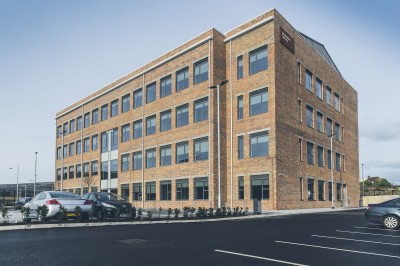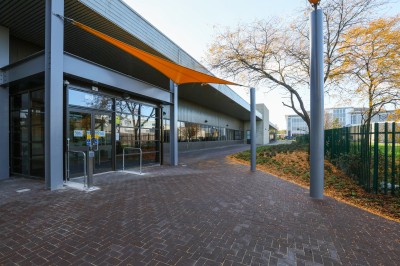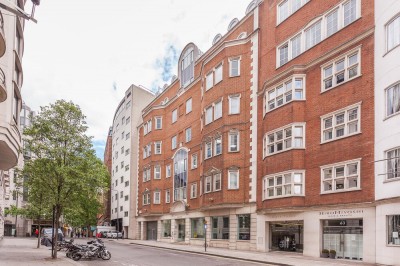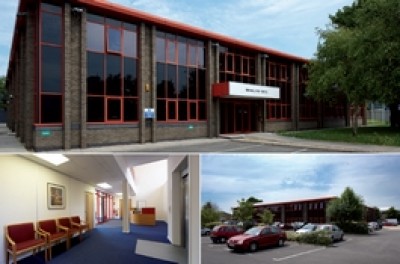Demand for Serviced offices across the UK is at an all-time high following exponential growth across the flexible workspace market, with an increasing number of businesses, from freelancers and start-ups, to growing SME’s and corporate companies opting for serviced offices, taking advantage of the flexibility on offer. Below we explain what a serviced office is, the many benefits they provide and an overview of what they can offer to the companies who use them.
What is a serviced office?
A serviced office offers businesses the opportunity to occupy fully equipped office space without the need for a long term commitment. Available on all-inclusive flexible terms office space is delivered fully furnished, with desks, chairs and pedestals, as well IT & Telephony infrastructure and connectivity to suit individual business needs. Occupiers have full use of building amenities, which would typically include bookable meeting rooms of varying sizes equipped with Audio-visual capability, a manned reception, fully stocked and maintained kitchen facilities and break-out space. With the changing demands of modern businesses and their workforce, increasingly, serviced offices also offer amenities such as on-site cafés, roof terraces, phone booths, games rooms, bike storage, showers and on-site gyms.
Key Benefits of a Serviced Office?
- Flexibility
One of the main benefits of a serviced office is its flexibility. With no long term commitment and a simple licence agreement rather than a lengthier lease, serviced offices are available to rent on flexible terms, typically from between 1 & 24 months.
- Plug n Play
With office furniture, internet connectivity and telephones all set up and ready to go, tenants can move in and be operational almost immediately, minimising downtime and sustaining efficiency and productivity.
- Company Growth
With an ever-changing business landscape, many modern businesses, particularly start-ups and growing SME’s, often see their staff numbers fluctuate and serviced offices offers the ability to upsize the office space at any point within the contract. The agreement simply moves across to the new office space for the remainder of the original term, with the adjustment in rent reflected in the monthly Direct Debit.
- Additional Services
Offering a useful support function for businesses, pay-as-you-go services including fully equipped meeting rooms, call answering services, mail handling, courier services and secretarial support.
- Business community
One of the growing benefits of occupying a serviced office is its business community. With regular socials, businesses have fantastic networking and collaboration opportunities, helping to forge new relationships and drive business growth.
What does a serviced office include?
A serviced office typically includes office furniture (desks, chairs and storage), IT and Telephony infrastructure and connectivity and will be delivered in refurbished condition with freshly cleaned carpets and painted walls. Tenants can brand the inside of their office space as they see fit. Hardware such as computers, printers, scanners and photo copiers are not provided and would need to be supplied by the tenant, although they can be sourced by the serviced office provider. Serviced office costs are inclusive of Rent, Business Rates, Service Charge, utilities, furniture, full use of the building amenities and daily cleaning.
Who uses serviced offices?
Any business of any size and from any industry can use a serviced office. Historically, freelancers, start-ups and growing SME’s have been the largest occupiers of serviced offices but with the increasingly uncertain economic climate and ever-growing need for flexibility, the market has seen a huge increase in corporate and blue-chip companies, such as Facebook and Twitter for example, opting to move into serviced office space. Businesses use serviced offices for a number of reasons, such as a short-term project space, a cost-effective way of catering for expected growth, a satellite office for overseas businesses or disaster recovery. One constant remains though, the main reason businesses use a serviced office will always be the flexibility that they provide.
What are the other office types?
There are some alternatives to serviced offices that offer similar flexibility. A managed office, for example, will offer more of a self-contained office space, fully furnished and technologically equipped, in buildings with a smaller number of occupiers but available on all-inclusive flexible terms. Typically, managed office space is for businesses with a minimum of 40-50 staff. The more traditional office type is leased office space. Ideal for businesses happy to with a longer term commitment, typically 5 years, conventional (leased) office space is delivered in shell condition, with responsibility of setting up, running and maintaining the office space solely with the occupier. Rent, Business Rates, Service charge and utilities are charged and paid separately. Co-working spaces are available, whereby different businesses occupy the same space, usually a large open plan office space, typically used by freelancers and start-up businesses looking to gain from the community and collaboration opportunities on offer.
Are you looking for a serviced office in London or across the UK?
If you’re looking for the a serviced office in London or throughout the UK, we’re here to help. Get in touch with our experienced team today for free and impartial advice or search for a serviced office here.







